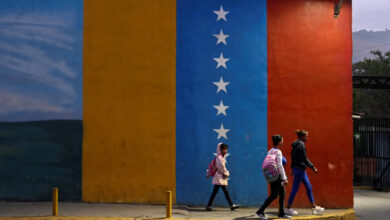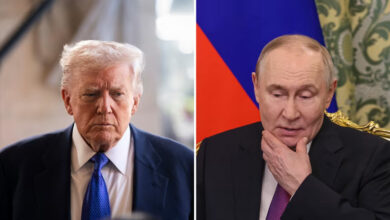
Can Arabs in the US influence the outcome of the upcoming election between Trump and Harris?
According to the Arab American Institute, the number of Arabs and Muslims in America are 3.7 million, geographically spread across the US, which is small if we compare it to the 240 million Americans who have the right to vote in the elections.
However, according to the electoral system in America, the number may be influential in certain states, especially “swing states”.
And Arab votes may actually contribute to the defeat of one of the candidates or their victory in the state as a whole.
But why am I asking this question?
I believe that Israel’s brutal attacks on Gaza and Lebanon, and the American support or willful indifference to these crimes in many forms, will push Arabs and Muslims in America to go to the polls in the November 5 election between Trump and Harris more than ever before.
This makes sense to me, especially since it is supported by a series of (logical) polls, including a recent YouGov poll conducted for Arab News, which predicted a record turnout of Arab Americans in the elections, emphasizing that Palestine is at the top of the pyramid of priorities that drive this turnout.
The poll was conducted between September 26 and October 1, and included 500 Arab-Americans across the US.
These results match another poll conducted by the Arab American Institute last May, also in the midst of the ongoing war, which showed a decline in the popularity of the Democratic Party due to President Joe Biden’s stance on the Gaza conflict – with his support from the Arab American community reaching less than 20 percent at the time.
The Arab News and YouGov poll confirmed that although Trump is considered closer to Israel due to his past positions, many Arab Americans are inclined to vote for him, contrary to their stated political beliefs as Democrats.
This seems to be a punishment towards the current administration for not reining in Benjamin Netanyahu’s far-right government and its devastating military campaigns on Palestine and Lebanon.
In a recent television interview, Trump touched upon this point, expressing his happiness that one of his grandchildren is half-Arab, referring to his daughter Tiffany’s marriage to the Lebanese Michael Boulos.
This statement is completely contradictory to his previous position in 2016, when he called for a ban on Muslims entering the United States, but he may have realized the importance of the Arab voice now.
These kinds of polls and analyses are worth pondering, and they do indicate that the Arab-Muslim vote matters.
Nevertheless, a difficult question remains: If the candidate that Arab Americans voted for wins, will he or she actually do what they want?




